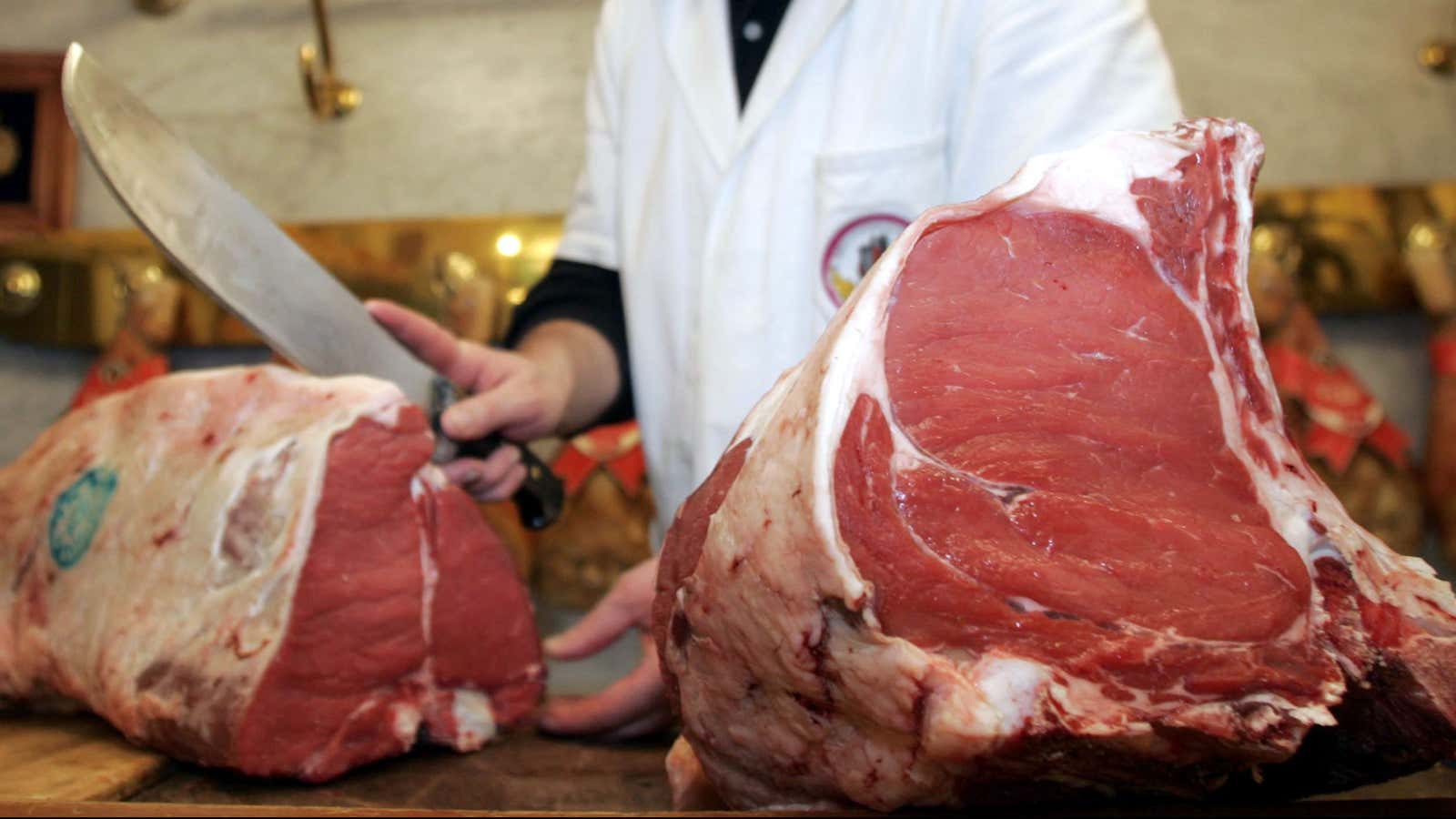It is well-documented that animal agriculture, writ large, is responsible for emitting a massive amount of greenhouse gases. Of the global total, which now reaches the equivalent of about 50 metric gigatons of carbon dioxide per year, the industry likely accounts for somewhere between 9% and 14%.
Most of those emissions are tied to the beef industry, which cuts down forests to make room for grazing cows and produces a lot of methane (which is 20 times more heat-trapping than carbon dioxide), among other things.
With that in mind, a new study published in Environmental Research Letters sought to analyze the impacts of the agricultural sector. The Washington Post (paywall) broke down a lot of the specifics of that study, including the following data. If a person gave up a five-ounce steak once a week for a whole year and replaced that meat with vegetables, just how many kilograms of carbon dioxide would be saved? It also translated those savings into gallons of gasoline.
Over the course of a whole year, forgoing steak just once a week and replacing it with veggies will not just (most likely) improve a person’s health. It’ll also save about two tanks’ worth of gas in a 2018 Honda Accord, or around 270 kg of carbon dioxide.
